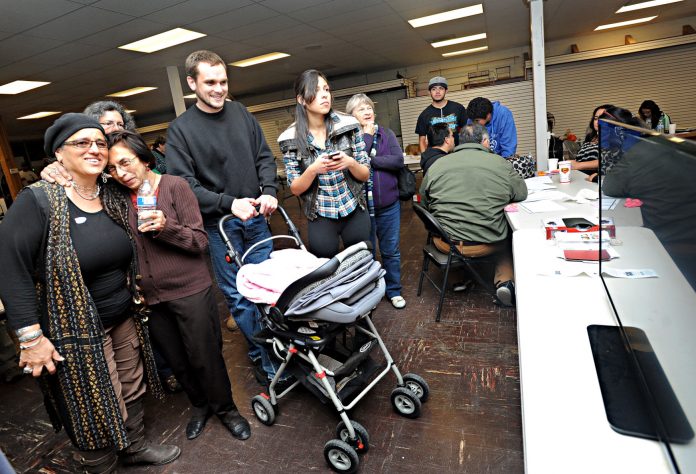
Measure J supporters believe they can use the momentum from its passage to broaden their green energy efforts such as revisiting encouragement of the “model green city” approach in San Juan Bautista, which they broached with Mission City officials in January.
Measure backer Andy Hsia-Coron with Protect San Benito said the goal with a model green city concept is to produce more energy than a community uses.
He said Measure J proponents will be looking for funding support, both public and private, to get such projects going in San Juan. He pointed to solar projects and wind endeavors as well – due to conditions in the valley – as possibilities. Hsia-Coron believes the area can do well focusing on agriculture and eco-tourism, and that Measure J showed a high level of enthusiasm from supporters.
“I think that’s a really good picture for our county,” he said. “A lot of people in this community have really been energized and connected and know each other.”
Voters overwhelmingly passed Measure J in last week’s election. The measure starting Jan. 1 will ban enhanced oil extraction methods such as hydraulic fracturing, steaming and well acidizing while barring all petroleum activities in rural residential zones near the cities.
In response to voters’ passage of Measure J on Tuesday, Citadel Exploration filed a document with federal regulators indicating the oil exploration company intends to pursue legal options in an attempt to move ahead on plans for steaming extraction in the Bitterwater area.
Ojai-based Citadel Exploration is behind the massive Project Indian oil field project in Bitterwater that was a focus of the county’s Measure J debate. Citadel has plans for up to 1,000 wells in an area initiative supporters argued was six miles from Pinnacles National Park.
Cyclic steaming – the enhanced extraction practice planned for Project Indian – was among the methods banned in the measure, approved handily by San Benito County voters this week.
In the 8-K filing dated Nov. 5 with the Securities and Exchange Commission, Citadel points to the Nov. 4 election result and cites the county’s prior passage of rules for exemptions “from the application of the Measure when the application of the Measure would result in a taking.” The filing goes on to define a regulatory taking as a situation where a government regulation limits use of private property to a degree where it “effectively deprives the property owners of economically reasonable use or value of their property right to such an extent that it deprives them of utility or value of that property right, …”
The SEC filing then specifies potential action.
“Accordingly, Citadel Exploration Inc. will provide the County of San Benito the ability to compensate the company for the diminished value at the Indian Oil Field based on the reasonable Unrisked Resource Potential the property would ultimately yield, or allow Citadel to proceed with full field development and steam injection under the exemption ordinance.”
Citadel Exploration spokesman Robert Parry had referred the Free Lance to the SEC filing when asked what’s next for the company after Measure J’s passage. Parry declined to comment beyond the filing.
The prospect for legal action comes as little surprise following the victory for initiative supporters whose campaign focused on a ban against fracking while the measure also barred more common extraction techniques such as steaming. Measure supporters argued that steaming and other enhanced practices can contaminate water supplies and possibly cause earthquakes.
Hsia-Coron, when reached earlier Friday afternoon, said measure supporters are confident the new law, taking effect Jan. 1, will stand.
“We’re certainly going to talk to the attorneys that helped us draft the initiative,” Hsia-Coron said, before word came down of the filing. “We wouldn’t put it past the industry to take a swat at our efforts. We’re pretty confident we’re on good legal standing.”









